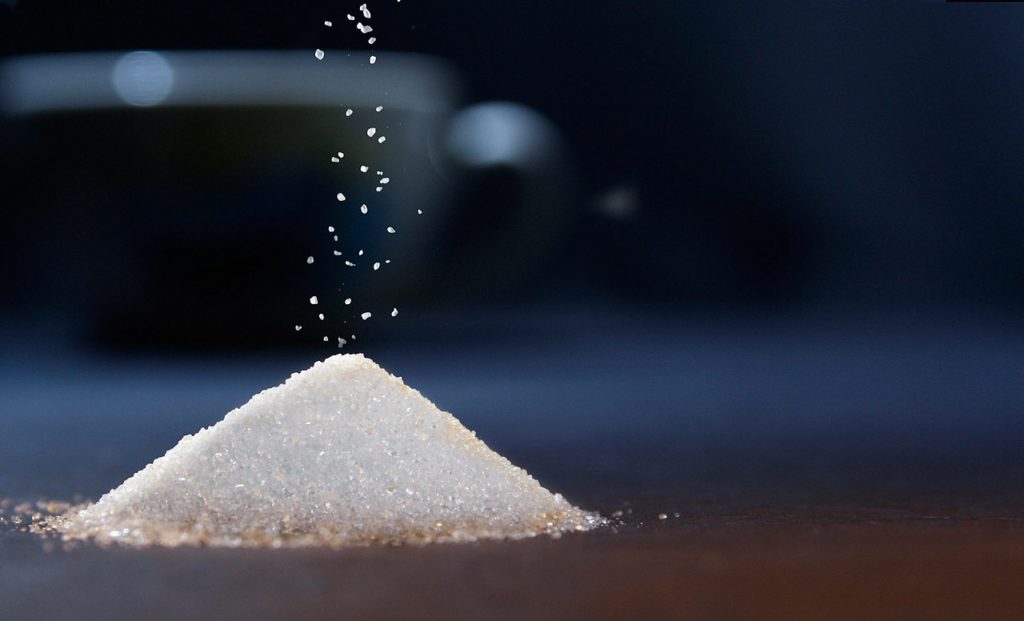The Food and Drug Administration’s (FDA) latest draft guidance report is opening doors for a rare alternative sweetener and it’s manufacturers.
The government agency is proposing that allulose be excluded from both the ‘total’ and ‘added’ sugar declarations on nutrition labels through enforcement discretion, meaning the FDA is still considering all approaches and concerns before making final provisions. This is significant because the guidance marks the first time the FDA is allowing sugar to not be classified as sucrose on packaging.
Allulose, also known as D-psicose, is a unique sugar molecule that derives from natural products such as wheat, raisins and figs. The sweetener is nearly calorie-free since the human body doesn’t metabolize it the same way as table sugar, and it also doesn’t raise blood glucose or insulin, making it a popular choice for people who suffer from diabetes or who are on the keto diet.
The FDA draft guidance report has undergone significant changes from 2016, which included allulose as both a sugar and carbohydrate on packaging. Currently, the calorie count of allulose is 4 calories per gram the same as regular sugar, but the updated draft would change it to 0.4 calories per gram. Despite its low-calorie makeup, manufacturers will still be expected to include the sweetener under the nutrition labels carbohydrate count.
This is welcome news for many manufacturers, especially since the FDA is undergoing stricter regulations on ‘added sugar’ labels for food packaging with hopes to decrease chronic illnesses such as cardiovascular disease and type II diabetes. These updates include both the grams and the daily recommended value of ‘added sugars’ to be displayed on nutrition labels. It will also feature larger font sizes for calorie intake and servings per container. Although these changes are not expected to roll out until January 2020 for large manufacturers and January 2021 for smaller, it’s been the subject of much controversy in the food industry.
The alternative sweetener allulose could provide manufacturers with an ingredient to help boost food products sweetness without increasing calories or counting as sugar on food packaging. According to Ingredion, a global ingredient solutions provider, sugar reduction is a growing trend in the food industry and allulose provides a unique way to meet this demand.
“From our consumer research we know that more than 60 percent of consumers are actively monitoring the sugar content of products they purchase,” said Afrouz Naeini, Ingredion’s regional platform leader for Sugar Reduction in the US and Canada. “ASTRAEA Allulose can help enable food and beverage brands to reduce sugar and calorie counts on Nutrition Facts labels, more so now with the FDA guidance helping to unlock even more opportunities.”
In December 2018, Ingredion partnered with Japan-based Matsutani Chemical Industry Co. to develop its line of ASTRAEA Allulose. The company is now in the process of bringing that product to market by constructing a manufacturing facility in Mexico.
“Construction is well underway at Ingredion’s dedicated ASTRAEA Allulose manufacturing site in Mexico and commercial scale availability of products are expected this year,” explains Naeini. “With the FDA announcement, we can now partner more closely with customers as they look to harness the full potential of ASTRAEA Allulose and help them bring winning products to market that meet consumers’ taste and indulgent wants and health and wellness needs.”
According to Ingredion, allulose is 70 percent as sweet as regular sugar and can provide manufacturers with similar functionalities as common sugars when cooking, such as bulking, browning and freeze point depression.
Many modern consumers are trying to reduce their intake of refined sugar and processed foods, and companies are taking notice. This includes Israel-based Gat Foods, who recently released a new fruit-based ingredient to replace refined sugars in cereal products.
This growing trend is fueling innovation in the ingredient industry and the FDA says it is still in the process of evaluating how to label other sweeteners that don’t metabolize the same as regular sugar in the digestive system.
“Due to advances in food technology, novel sugars are now available that are not metabolized and that do not contribute 4 kcal/g to the diet like other traditional sugars. Consequently, we need to consider how information about sugars, like allulose, should be captured on the label,” states the FDA in their draft guidance report.
With the stricter regulations on ‘added sugar’ labeling rolling out next year, allulose has the potential to become a key ingredient for many food manufacturers looking to increase product sweetness without increasing the amount of sugar found on the nutrition label. Before the FDA begins to work on the final guidance report, they are accepting feedback from the public up until June 17th, 2019.












Join or login to leave a comment
JOIN LOGIN